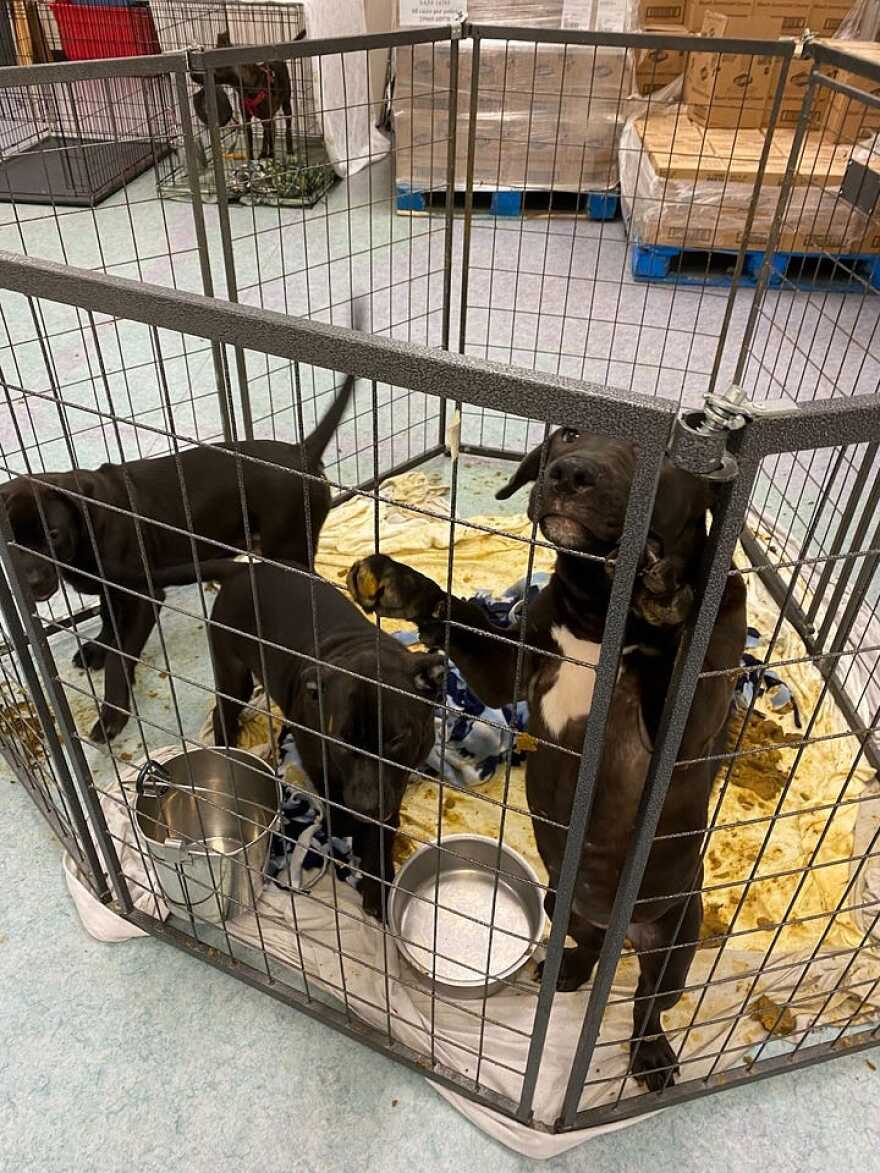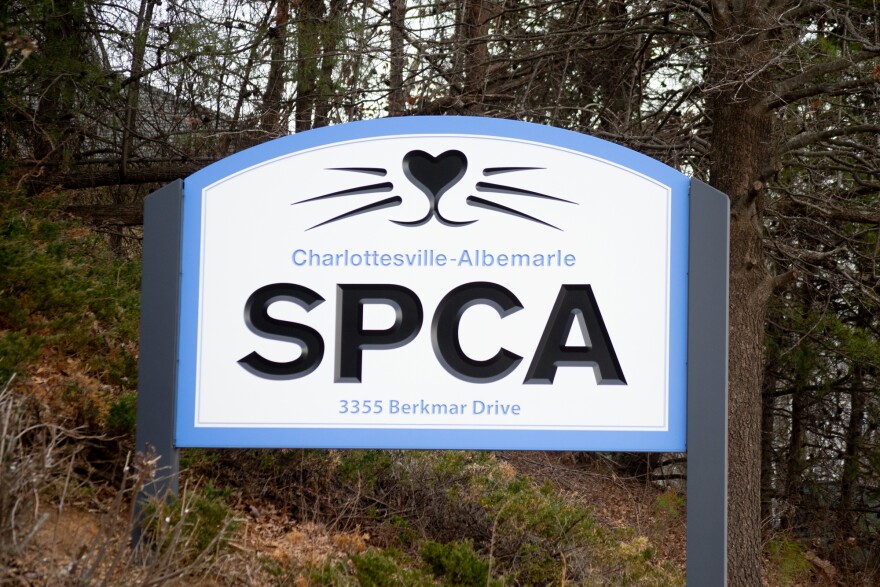The board of directors of the Charlottesville-Albemarle SPCA is hiring a third-party investigator to look into allegations brought forward by staff and volunteers. WMRA's Randi B. Hagi reports.
On January 17th, former staff members and current and former volunteers of the Charlottesville-Albemarle SPCA sent a letter to the board with two central claims: one, that the CEO, Angie Gunter, had created a hostile work environment; and two, that the shelter's current animal care practices were substandard.
The letter cited high staff turnover; dogs being housed in unclean, too-small crates; and dogs being found in life-threatening medical conditions.
Along with this anonymous group letter, 13 people wrote individual letters about their experiences at the animal shelter. Since then, nearly 60 people in total have written their own letters supporting the coalition's call to remove Gunter from leadership and make other improvements. Twenty-two of those letters are from former employees who signed their names.
Katie Roche was among them.
KATIE ROCHE: So the main reason I left … was because of the over-transfer in of animals from out of state.
She worked there from 2018 to 2021.
ROCHE: We were housing dogs in crates in the basement because there was an overflow of animals, and we didn't have space for them in our kennels. … We were knowingly transferring in dogs that had been exposed to distemper from Texas and bringing them into Virginia.

This was a common issue cited by the letter-writers. Twenty-five claimed to have witnessed poor animal care and cleanliness – in many cases, due to overcrowding caused by the influx of animals being transferred in from other shelters. In some instances, the former staffers say this led to disease outbreaks among the animals.
Four of the individual letters and the group letter included photos and videos supporting their claims, including dogs being housed in small crates, and in a basement area with urine and feces on the floor.
Twenty-three of the writers claim to have experienced Gunter behaving in disrespectful or bullying ways.
MORGANNE STRUBLE: She would continually try to gossip about the performance of other employees. She would try to pin us against each other.
Morganne Struble worked there from 2018 to 2021.
STRUBLE: She regularly bragged about surveilling employees. She mentioned that she had our Compassionate Care-a-Van bugged.
When reached by phone, Gunter referred all questions to the board's president, Jenn Corbey. Corbey told WMRA in an email that the board is in the process of hiring a third party to conduct an investigation of the allegations, but as of last week they had not yet selected a firm.
Corbey said she couldn't comment further at this time, but wrote in an email, [quote] "As always, nothing is more important than providing safe and humane treatment of the animals in our care, and ensuring a positive environment for SPCA staff and volunteers." [end quote]
Several of the writers claim the leadership team sacrificed staff and animal wellbeing for the sake of appearances, such as with the transfer intakes.
Based on 2021 data reported to the state, the CASPCA far outpaces all the other major animal shelters in our broadcast region in terms of transfer intakes – transferring in more than 1,000 animals that year, including more than 500 from out-of-state agencies.
Several of the letters also cited examples of euthanasia being delayed for suffering, elderly animals, and dogs being allowed to continue their pregnancies, against medical advice. The shelter does have one of the highest "live release rates" in the region. Sometimes referred to as a "save rate," this number varies based on how you calculate it.
Going by the Best Friends Animal Society method, it means the percentage of animals that were admitted to the shelter that were adopted, reunited with their owners, transferred out, or remained in the shelter – in other words, the pets that didn't die, get euthanized or become lost in the shelter's custody. Under this calculation, the CASPCA had a 95.5% save rate in 2021, based on data submitted to the state. Of the nine local shelters whose data I looked at, that placed them in second, behind the Winchester SPCA at 96.8%.
But Katie Roche said that looking at that number alone does not tell a full story.
ROCHE: When we prioritize this quantitative standard in sheltering, it usually comes at the expense of the quality of life of animals.
She told me about a dog named Jenny.
ROCHE: She was about 12 years old and she had mobility and incontinence issues … so staff would often find her covered in her own urine in the mornings when we came to start the day. We did our best to make her clean and comfortable, but I truly believe that she had a poor quality of life, and from my understanding, our vet staff did recommend euthanasia, but the leadership team did not listen because it could negatively affect the live release rate.
Eighteen of the letters also reference poor management of dogs with behavioral issues, which in some cases led to people and animals being bitten; and dogs being stuck at the shelter for long periods of time with no behavioral intervention.
Claire Carpenter Allen, who worked at the shelter from 2015 - 2017, recounted two mastiffs that had been transferred in.
CLAIRE CARPENTER ALLEN: One of them took a chunk of the thigh of a veterinary assistant. You had to walk with a toy or a stick or something should they try to attack you because they were so undersocialized. … We essentially had to still find homes for them despite our concerns.
Struble and other former employees say that the shelter's high turnover rate has been a red flag as to conditions there.
STRUBLE: At least 50 employees have resigned since November 2021, and at least 30 managers and other non-entry levels have resigned since January of 2022.
Some of the letter writers encouraged concerned community members to help pick up the slack by fostering a pet.


